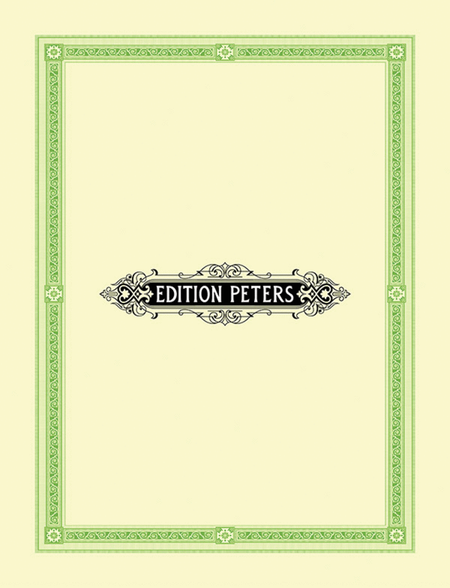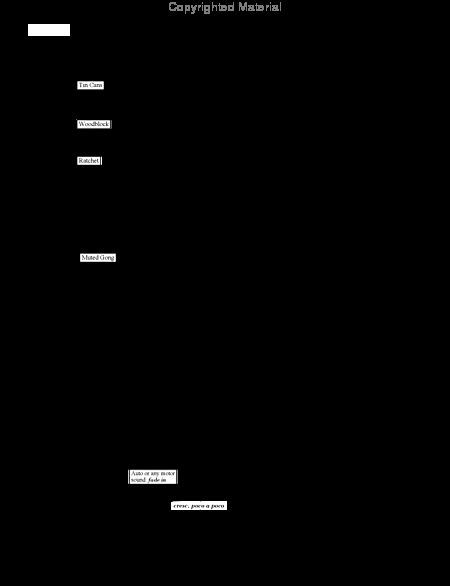The City Wears a Slouch Hat
A radio play by Kenneth Patchen (1942) for Percussion and Sound Effects
Details
Description
SKU: PE.EP67497
A radio play by Kenneth Patchen (1942) for Percussion and Sound Effects. Composed by John Cage. John Cage. Edition Peters. 20th Century. Score. Composed 1941. 80 pages. Duration 00:35:00. Edition Peters #98-EP67497. Published by Edition Peters (PE.EP67497).ISBN 9790300740751. Preface: English/German.
Music for a radio play by Kenneth Patchen (1942) for Percussion and Sound Effects
This score is for sale for the first time, the performance material remaining for rent. All materials were newly engraved, and are an improvement over the manuscript version. The editor's preface is in both English and German.
John Cage moved to Chicago in 1941, and received a commission from the local CBS radio affiliate to write what turned out to be his only explicit musical setting of dramatic text. Cage's finished score was longer than the program's run time, and a week before the May 1942 performance he hastily rewrote the score to fit it. The editor of this edition, John Kennedy, is a member of Essential Music, the performance ensemble who resurrected this work in 1990 after Cage's finished manuscript (originally kept by CBS, who commissioned the work) was found in the storage of the New York Library for the Performing Arts. For that performance, the ensemble compared the recording and manuscript to Cage's draft, and this edition reflects the version before Cage made cuts to fit the work into the radio play's allotted 30 minutes. Says Kennedy: "Kenneth Patchen's rather surreal script chronicles the wanderings of a mysterious and rootless drifter named 'The Voice' as he encounters various characters and scenarios in the urban landscape. 'The Voice' exhibits clairvoyant power on more than one occasion, casually dismisses the mundanity of everyday life, and pulls from his memory quotations of Sixteenth Century poetry by Christopher Marlowe and John Donne. Yet we can't be sure of the stability of his wisdom: his manner evokes the contemporary homeless person who rejects the functions of society while clinging to a painful love of life. The play ends with 'The Voice' having found a friend and some peace on a rock in the ocean, an island apart from the noise of the city."
This product is Printed on Demand and may take several weeks to fulfill. Please order from your favorite retailer.



 Share
Share